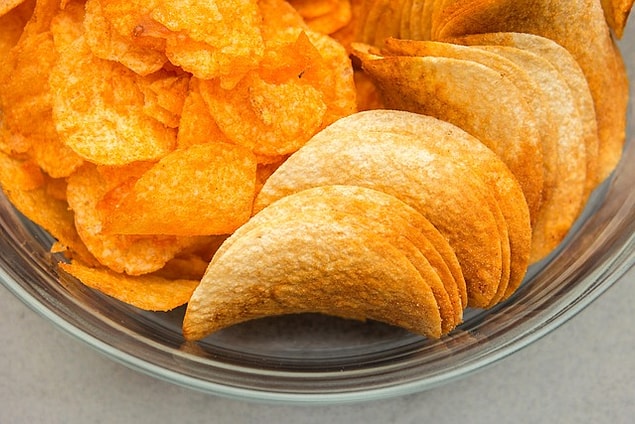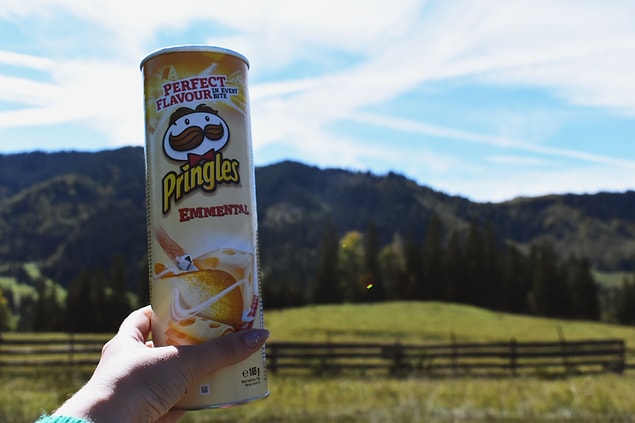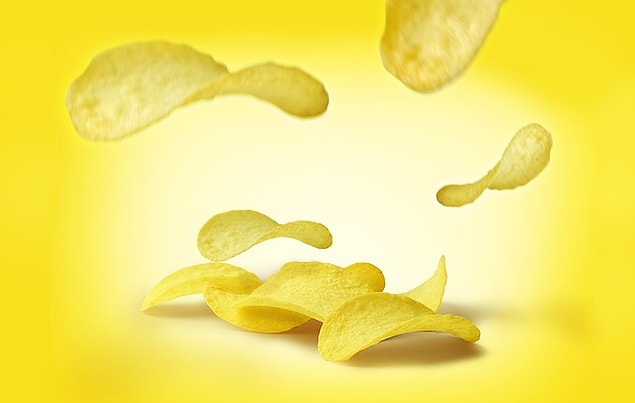> Still think Pringels are potato chips? The “chips” dispute resulted in a whopping $160 million payment
Did you know that this salty and tasty snack that’s a staple of our movie nights isn’t actually potato chips? This situation came to light when other companies that made potato chips filed a lawsuit against Pringles in the American court. The mainstay of their complaints was that Pringles, which claimed to be potato chips, actually didn’t have enough potatoes in it. If you’ve been wondering the story of Pringles you loved eating, read on!
Pringles says it produces a better product than other potato chips.

Before we talk about the process that brought Pringles to court, it’s important to remember what happened. In its early ads, Pringles criticizes other chips, notably Lay’s, one of its biggest competitors in the market, for being both too oily and broken at the bottom of their bag. He says it’s easier to consume because it doesn’t get your hands dirty and doesn’t break and collect at the bottom of the bag.
Its secret is hidden in its tubular packaging.

Packing other chips in bags will cause the chips under the bag to break and become crumbs during transportation. Pringles, on the other hand, markets its chips in cylindrical boxes. This packaging strategy makes Pringles chips more resistant to breakage during shipment.
However, they have to make some differences in the production process.

The company, which differs from its competitors with its packaging, takes a different approach than other potato chip manufacturers when it comes to the content of the product. Unlike their competitors, Pringles are not made by slicing real potatoes into specific shapes and then frying them in oil. Instead, producers choose to press the dried potatoes by mixing them with flour and starch and forming them into a parabolic shape, then frying them to make chips we’re happy to eat. This method ensures that the chips are in perfect shape and the product is leaner. Killed two birds with one stone, right?
At this point the court proceedings begin.

Of course, since Pringles aren’t made using the standard French fries method, the US Food and Drug Administration steps in. In the ultimatum they sent to Pringles in 1975, they stated that the product they were making could not be marketed as “potato chips.” Pringles then introduces its products as “potato flakes” on its packaging.
Then there is the issue of taxation.

This idea, which took off in America and introduced the product as potato flakes, causes problems in Great Britain, because the British actually call all potato chips crispy. But there is also a tax issue that complicates the story. Procter & Gamble (P&G), the producer mother of Pringles, does not want to call the product a potato product anyway. Because under British law, all potato chips and food made from potatoes are subject to VAT. Therefore, the parent company does not want to subject its products to this tax.
Debate begins as to whether it is made from potatoes or if it is distantly related to potatoes.

A debate ensues as to whether Pringles is really a potato chip, and the dispute goes to court. If Pringles is defined as potato chips, the manufacturing company P&G must pay the 17.5% tax. P&G, which does not want this, claims in its statement in court that the product is not actually a potato chip because the product content does not contain enough potatoes. It is even claimed that the product can actually be called a biscuit.
In 2008, a British court ruled that Pringles were not potato chips.

After these discussions and a lengthy court case, the English court ruled in 2008 that Pringles contained only 42% potatoes and had an unnatural shape. So the court states that Pringles are not potato chips. However, just a year after that decision, the Court of Appeals overturned the decision. With this latest decision, parent company P&G has to pay a whopping $160 million in taxes. So what do you think of this whole process? Do you think Pringles is a potato chip or a potato flake? Or would you rather call Pringles a biscuit, as the company has taken to court? Irrespective of this, of course, the following applies: ‘The name is none of my business, I concentrate on the taste.’ You can also say The decision is yours, bon appetit in advance!
#Pringels #potato #chips #chips #dispute #resulted #whopping #million #payment

No comments:
Post a Comment